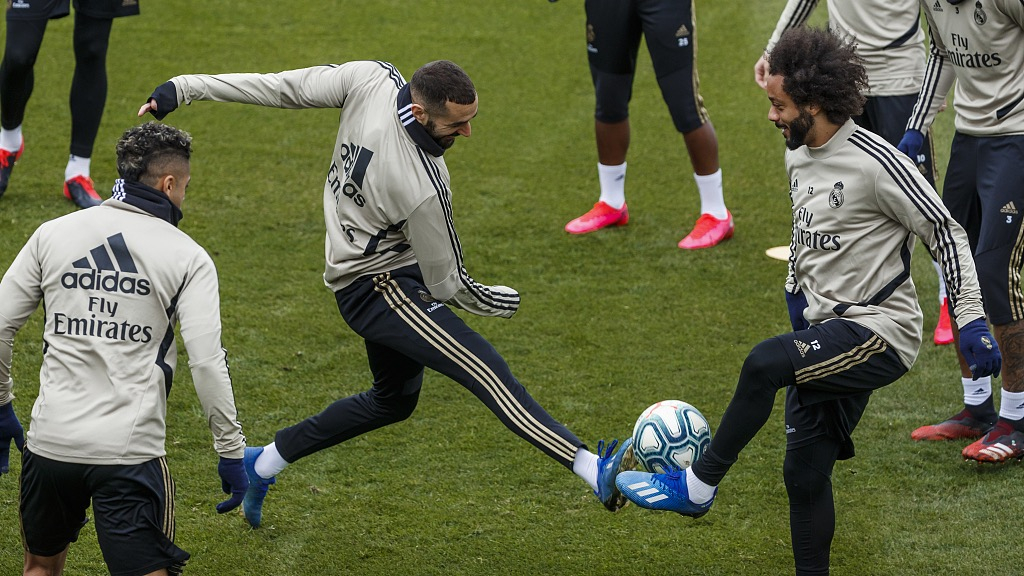
Real Madrid players during a training session, Madrid, Spain, February 29, 2020. (Photo: VCG)
Spanish football is beginning to move toward reclaiming some semblance of normalcy as the country's sports and health authorities have reached an agreement with La Liga organizers that players from the top two divisions would return to individual training and prepare themselves to resume playing in June.
"This crisis has had a profound impact on all of us. The return of football is a sign that society is progressing towards the new normal. It will also bring back an element of life that people in Spain and around the world know and love," La Liga president Javier Tebas said on Monday.
"People's health is paramount, so we have a comprehensive protocol to safeguard the health of everyone involved as we work to restart La Liga. Circumstances are unprecedented, but we hope to start playing again in June and finish our 2019-20 season this summer," he added.
According to a protocol approved by authorities, all players will undergo COVID-19 tests before they could return to training facilities.
"These measures cover a period of approximately four weeks with different phases that, in any case, will be subject to the de-escalation process established by the government," read a La Liga statement.
"Together with the medical tests carried out by clubs, a staggered return to training has been implemented that will start with players training alone and with group activities prior to the return to competition, scheduled for June."
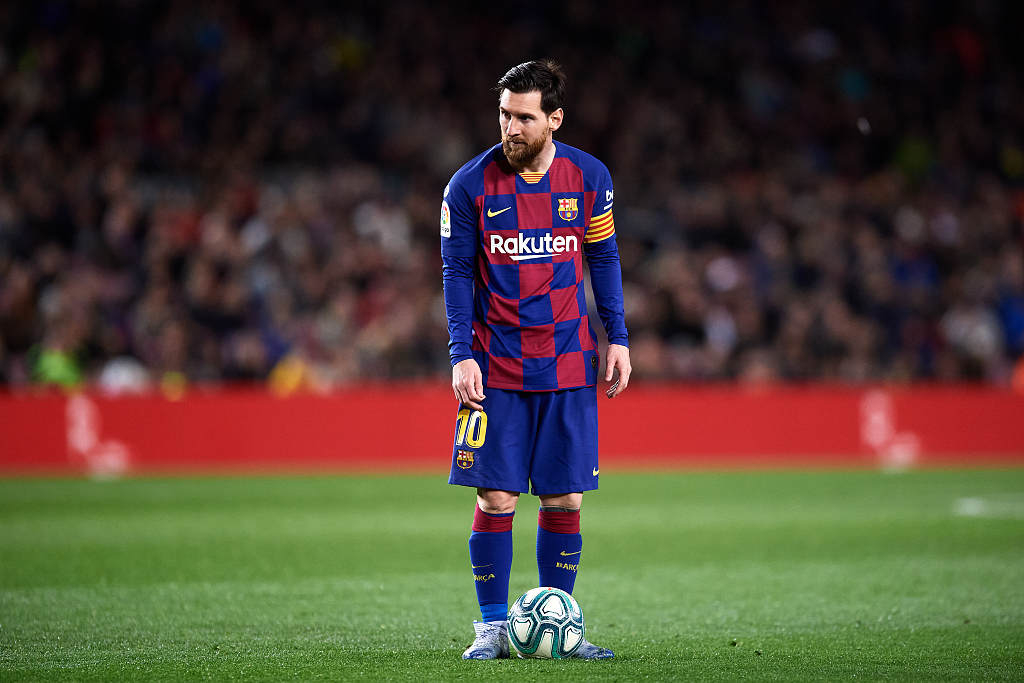
Barcelona's Lionel Messi prepares to take a free kick during their La Liga clash with Real Sociedad at Camp Nou, Barcelona, Spain, March 7, 2020. (Photo: VCG)
However, La Liga's plan to return next month has prompted concerns about a possible second wave of infections.
Luis Cereijo, a sports science researcher and professor of biomedicine at the University of Alcala de Henares, highlighted a hidden testing problem during his latest interview with Spanish media outlet El Pais.
"To be sure that an infected player tests positive, you have to wait at least a week after the infection occurs. Considering some leagues are planning to play every three days, if you detect a positive that has spread to other teammates, it is possible that after three days you will test the entire squad and have false negatives," he said.
"The margin of error is large. Football can continue to exist but what cannot exist when there is no vaccine is the current competitive structure. Maybe the leagues should develop a more flexible competition schedule taking into account the possibility that a team may have to retire for a week," he added.
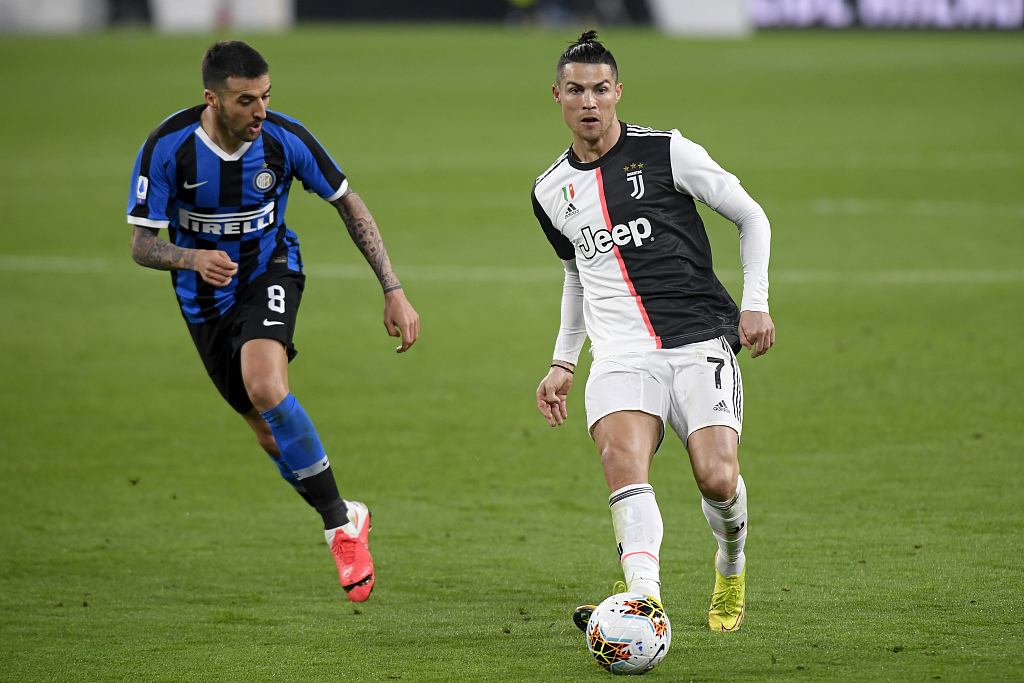
Cristiano Ronaldo in action during the Serie A clash between Juventus and Inter at Allianz Stadium, Turin, Italy, March 8, 2020. (Photo: VCG)
Portuguese star Cristiano Ronaldo arrived in Italy on Monday after almost two months in COVID-19 lockdown in his hometown. The five-time Ballon d'Or winner will have to undergo two weeks of quarantine before joining up with his teammates at Juventus.
According to Italian newspaper Tuttosport, many Juventus players have already been tested for coronavirus at their training center. Aaron Ramsey, Federico Bernardeschi, Juan Cuadrado, Carlo Pinsoglio and Merih Demiral were all examined. The results have not yet been revealed.
Italian clubs were allowed to return to training in small groups on Monday after the Italian interior ministry announced plans to relax its restriction measures. But Sports Minister Vincenzo Spadafora, insisted that it was still too early to discuss the resumption of Serie A.
All 20 Serie A clubs have voted to get the season underway again whenever it is safe to return. And Italian Football Federation (FIGC) president Gabriele Gravina reiterated last week that he will never follow the step of the French Ligue 1 to cancel the current season as it "would be the death of Italian football."
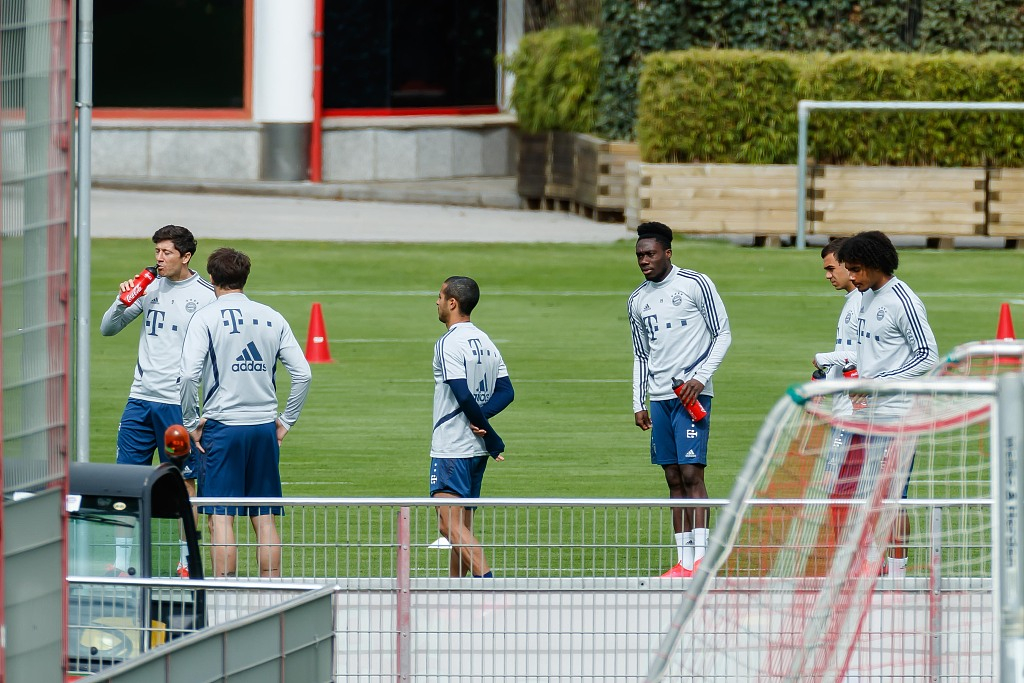
Bayern Munich players relax during a training session, Munich, Germany, April 30, 2020. (Photo: VCG)
Meanwhile, the German Football League (DFL) announced on Monday that 10 unidentified people have tested positive for COVID-19 in more than 1,700 tests carried out by organizers ahead a planned resumption of full training.
"The tests carried out over the past few days have fulfilled their purpose of providing additional safety and thus protecting players as best as possible from infection during team training or matches," read a DFL statement.
The positive results all came from the first round of tests as Bundesliga side Cologne announced three positive tests on Friday. The German league prepares to restart matches from the weekend of May 16 in empty stadiums.
The DFL confirmed that a second round of tests would be carried out in the next week and there "may be isolated positive test results." It added that "the overriding goal is to ensure maximum prevention on the basis of detailed distance and hygiene measures and permanent monitoring."
The news came as Hertha Berlin striker Salomon Kalou has been suspended by his club after filming himself flouting social distancing rules on his return to training.
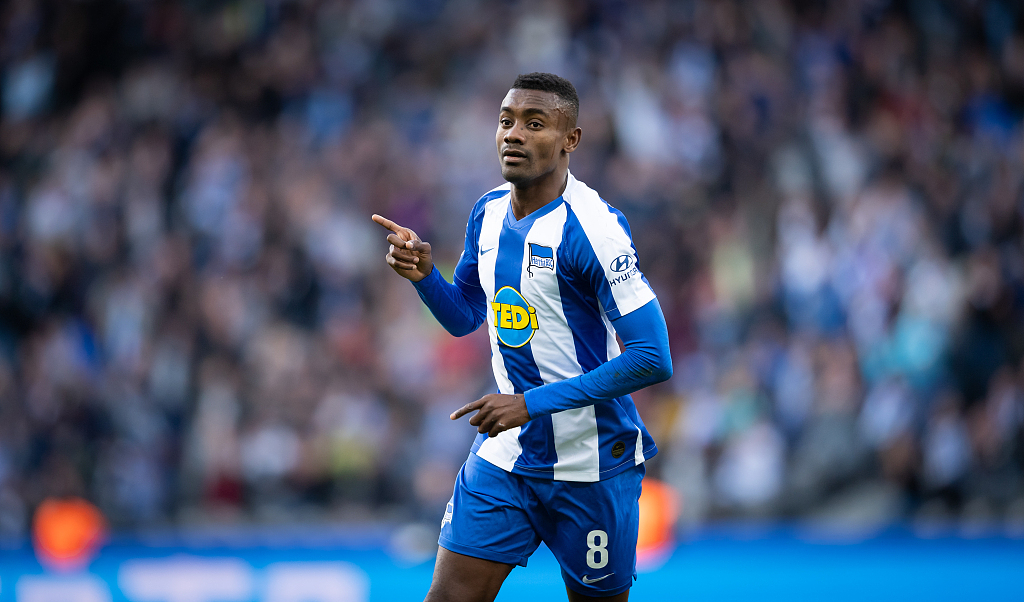
Salomon Kalou moved to Hertha Berlin from Lille in 2014 and became a mainstay in the Bundesliga club. (Photo: VCG)
"Salomon Kalou was tempted by his negative test results to greet the other players in the dressing room, sometimes with a handshake, contrary to the clear announcements made by health authorities," Herta said in a statement.
"With his 'Corona Song,' Kalou gave the impression that he is not aware of the extent of the ongoing pandemic. The club has therefore made the decision to suspend the player in question from training and matches with immediate effect," it added.
Kalou then released a statement late on Monday apologizing for his actions.
"I'm sorry if I gave the impression that I'm not taking coronavirus seriously. I want to apologize for this," he said. "The reality is the exact opposite, because I'm really worried about the people of Africa, because health systems aren't as good there as they are in Germany."
Despite all the setbacks and disruptions, Bundesliga clubs have vowed to finish the season and keep hold of the life-saving broadcasting revenue. German Interior Minister Horst Seehofer also came out in support of football's return this month.
A decision on whether the DFL's restart plans get the green light from the government is expected on Wednesday.


